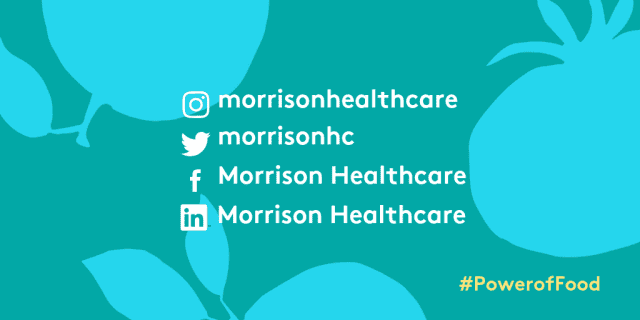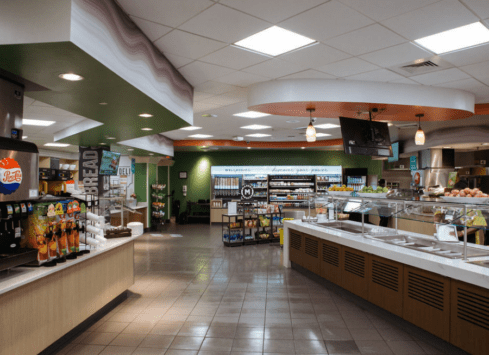The Future of Food
A Q&A with Kevin Dorr, Morrison Healthcare VP of Retail Solutions

As the leader in foodservice, we’re constantly re-imagining the quality and future of hospital food. Recently, we sat down with Kevin Dorr, VP of Retail Solutions, to talk about our Retail (café dining) Brand Strategy and the changes he’s seeing in how food is delivered and consumed.
Q. Tell us about your role. What’s it like on a weekly basis?
Kevin: I wear a bunch of hats. When it comes to retail foodservice, we have an incredible team that is always hunting and searching for the next best thing. People are expecting more out of a dining experience than ever before and trends are changing fast. Ultimately, we’re looking to identify those trends so we can attract more guests to our cafes. Every week, I’m pushing myself and our team to be forward thinking.

Q. What’s involved with the retail food experience?
Kevin: For a long time, it was about a brand name or product. Now, people are looking for more. It may be about how [a food] makes them feel or whether they want to be a part of something with their friends. It may sound or feel cool, and social media is a big part of that.
Q. The next generation, what are they looking for and how do you stay ahead of that curve?
Kevin: For a long time, we’ve worked hard on delivering consistency. Now, it’s more about delighting and surprising customers. That’s something we strive to do each day. The next generation is looking for three things. First, they want an authentic, real experience in their food preferences and recipes. Next, they want storytelling. How we tell the story of our food is critical. Third, they want it simple and easy.
Q. What do you mean by storytelling? Tell us a little more about that.
Kevin: It is the story behind their food. Sustainability and healthy eating are important. The recent impact of plastic straws on the entire food industry came from a 9-year-old boy. After that happened, clients wanted to know our stance on plastic straws. We need to be able to tell a story about our food and products – where it came from, who made it and what it does to our bodies and planet.
Q. Like you mentioned, convenience is important. How are you making healthy food available quickly?
Kevin: This is probably one of the most complex challenges we are facing – cooking and delivering healthy food, fast. Because of technology, our competition isn’t the restaurant down the road; anybody with a car and a cell phone can deliver food. Think Uber Eats. We have to rethink our delivery model and how we can make it simple.
We are starting to do that. We have about 20 accounts that have mobile order pay. For their convenience, a nurse or anyone else in the hospital can place an order from anywhere in the hospital, take the elevator down the café, pick up their food and move on.

Q. As technology evolves, there’s the perceived risk of losing personal touch. Much of our success is tied to the personal touch we provide. How do we keep that?
Kevin: That’s where we have a leg up on the competition (meaning, other restaurants or quick-service options). We see these folks in the café four or five times each week, and we know their names. The delivery guys down the road don’t have that. People who work in high-stress situations want more than just a good lunch. They are looking for someone they know, a smiling face, somebody they recognize. We have an advantage now, but others are nibbling away.
Q. What is the future of food service?
Kevin: Big changes are not that far away. We’re starting to see automation in fast food restaurants, for example, robots flipping burgers. But in our situation, people are looking for an emotional connection. A big piece of the experience that will never go away. I would argue that nobody needs it more than those in a hospital.
The secret to our success is continuing to engage our frontline associates so that they engage with our guests. It’s critical that our frontline folks are ‘all in’ with us.
Got more questions for Kevin? Tweet us @MorrisonHC and use #AskMorrison.





